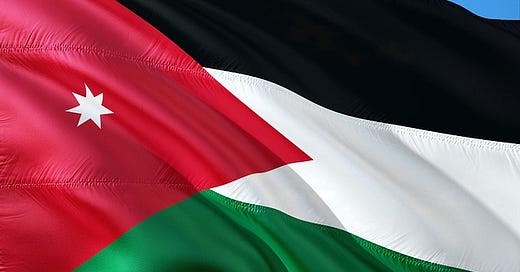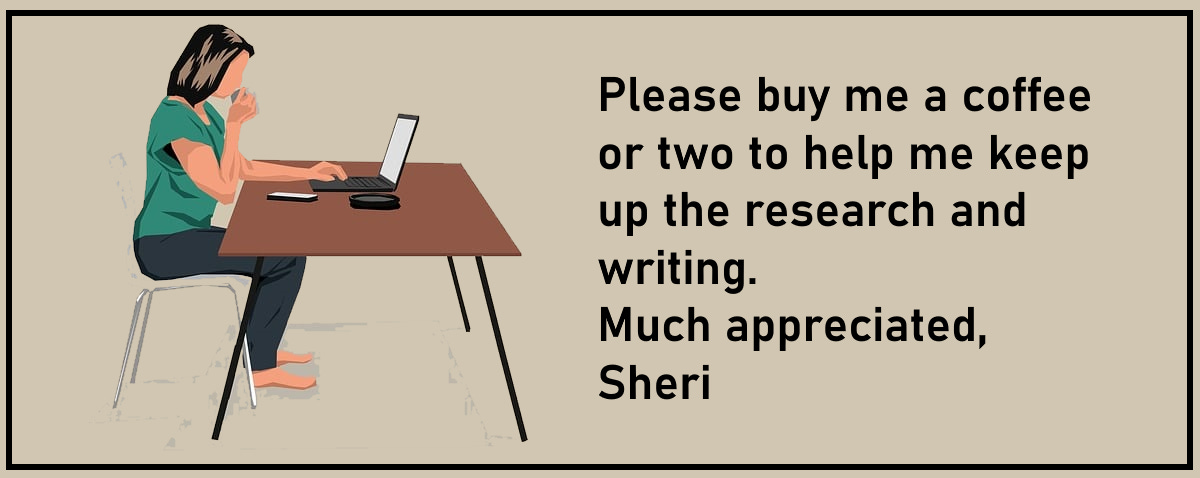Jordan, a nation of Bedouin Tribes. Part II: Randomly revoking citizenship from those of "Palestinian" origin
Who cares what Jordan does to her Palestinian citizens?!
This two-part article is based upon Zaina Siyam’s masters thesis for the Department of Law at the American University of Cairo, entitled, “Legal Construction of Nationalism and National Identity in the Hashemite Kingdom of Jordan“. Part I discussed the definition of a Jordanian according to Jordanian Citizenship Law, the issue of Jordanian identity as reflected in law, and Jordan as an artificial country.
Jordanians of “Palestinian origin” are a major issue in the country and, according to Siyam, they are considered guests of the Kingdom. She discusses the way Jordan is now dealing with the problem by revoking their citizenship.
Jordanians of Palestinian Origin
Siyam writes that
[the] nationality [of the Palestinian people] did not shape their history, because it did not play a part in it, but the existence of the occupation and the oppression they face, constructed the sense of nationalism and loyalty within Palestinians, . . .
Due to the influx of Palestinian refugees after the Arab Israeli wars, the Partition Plan, and the Intifadas, the majority of the Jordanian population today are essentially of Palestinian origin. Palestinians in Jordan, however, recognize the alternative homeland scenario [Jordan is Palestine] that aims to destroy the right of return, . . .
It [right of return] is a cornerstone of Palestinian nationalism, and the hope that keeps the resistance alive, in order for future generations to return to the land.
Since 1988, and especially over the past few years, the Jordanian government has been arbitrarily and without notice withdrawing Jordanian nationality from its citizens of Palestinian origin, making them stateless. The Jordanian government explains such an act by saying they did this in order to maintain a Palestinian population to prevent Israel from emptying Palestine of its original inhabitants, they even went as far as saying it is a national duty and that they should be thanked for doing so. This could also be seen as an act of creating a separation between Palestinians and Jordanians, because if all Palestinians are granted Jordanian citizenships, then the country essentially turns into a proxy state of Palestine, hindering the Jordanian identity that the ruling family has been trying so hard to create. [emphasis added]
This leads to:
. . . debate about whether Palestinians are guests in the Jordanian territory that will at some point return to their homeland, and therefore should appreciate and respect Transjordanian hospitality and not interfere in state affairs, or if they are full members of Jordanian society and contribute to it.
Historically, Palestinians have contributed to Jordanian society, and after the economic liberalization and privatizations in the 2000s, Jordanians dominated the public sector, whereas Palestinians built strong roots in the private sector as foreigners, where Palestinian businessmen benefited from the reforms economically, but suffered politically with regards to their status as citizens of the state.
Transjordanians argue that Palestinian Jordanians are more than compensated for their political exclusion by their control over the private sector.
At the same time, Siyam makes the point that
. . . although they may be subject to discrimination in certain respects in their social and political lives in Jordan, it is in a manner which does not cross the threshold from discrimination to persecution or breach of protected human rights.
However, it is hard to see how this does not cross the threshold into violation of human rights:
With the revocation [of Jordanian citizenship], thousands of Jordanian nationals of Palestinian origin lost their right to residency, public healthcare, education, and lost their freedom of movement between Gaza, the West Bank, and Jordan. Once the citizenship is revoked, the Palestinian refugee is left with no political, civil or economic rights. This limits their right to marriage, child registry, employment, or even receiving payment through a bank. [emphasis added]
And, in fact, Human Rights Watch shares heart-breaking stories of the break-up of families, loss of livelihood and more in a detailed report of the impact of withdrawing citizenship from Jordanian Palestinians. They are not notified of the revocation of their rights, but when they seek to renew a driver’s license, passport or access medical services or more, they are then told they have to pay the higher fees charged of non-Jordanian nationals.
Siyam concludes her thesis thus:
Jordan needs the laws that it has in order to separate Palestinians from Jordanians, because if all Palestinians were to be accepted as nationals of Jordan, then the Jordanian national identity is at risk of losing the battle of the identities.
The point in this is to say that regardless of the Palestinian state and the Jordanian state being two completely different entities, their national identities cannot be separated. There is too much shared history between the two populations to a point where one cannot speak about Jordan without speaking about Palestine and vice versa.
Transjordanian fears about Palestinian citizenship are really unconscious fears about the vulnerability of the Jordanian state. And the use of legal instruments in order to reinforce Transjordanian national identity, is only an attempt to make sure it stays legitimate and uncontested.
Jordan does not identify as a territory that was at one point in time part of the same mandate as Palestine but identifies as a traditional Arab state that was built from Bedouin routes, and has solidarity towards the Palestinians.
Something to reflect upon when considering the Israeli-”Palestinian” Arab conflict, no?
Part I of this article, originally published in September 2024, included both parts I and II as one long piece. I just split it into two separate parts for clarity and length concerns.
Because Israel is not supported on the Substack payment platform, I have set up an alternative for those who want to support my work.
You can make one-time or repeated donations in your own currency using Paypal (Buy me a Coffee, above) or the Ko-fi payment platform here. Israelis can send me a private message for another option.
Articles will always be free for all subscribers but a one-time or repeated donation is a way to help me sustain myself while doing all the work involved in putting these articles together and would be greatly appreciated.
Thank-you to all those who have supported my work by subscribing and/or by donating coffees.





It’s been 50+ years since Black September, and still Jordanian’s don’t trust the Palestinian’s?
Yes but did you know that King Hussein was a high school wrestler at Deerfield Academy